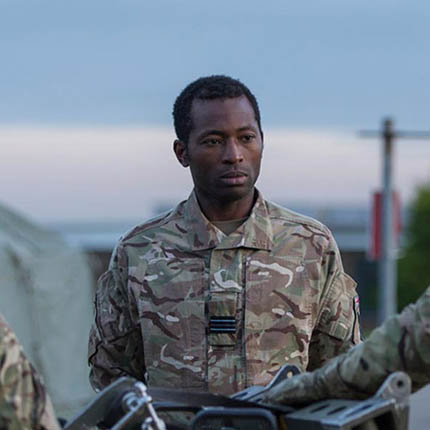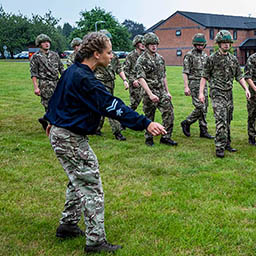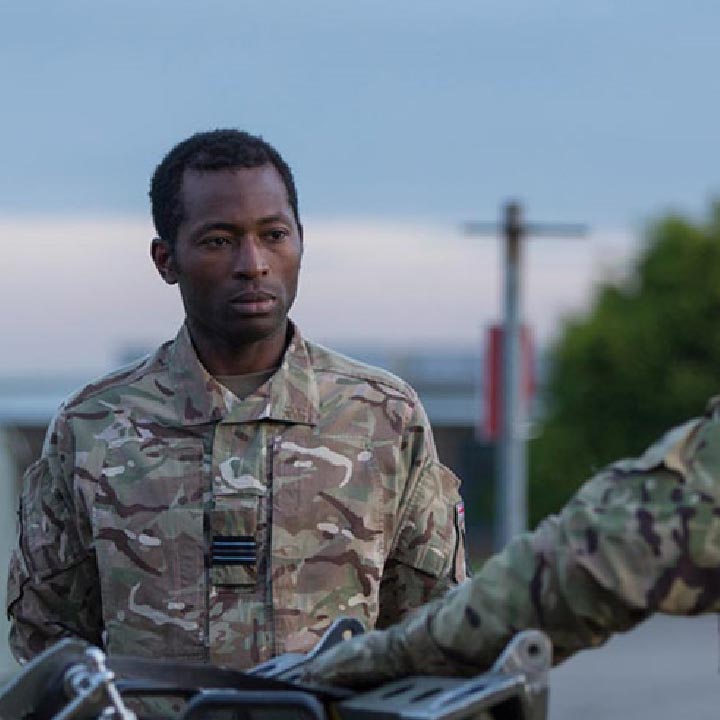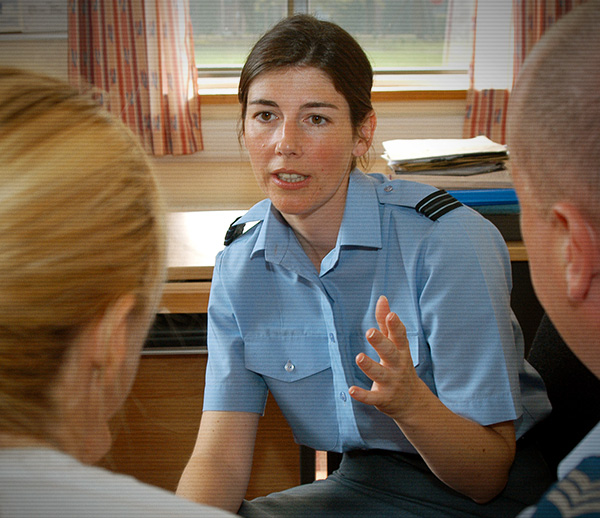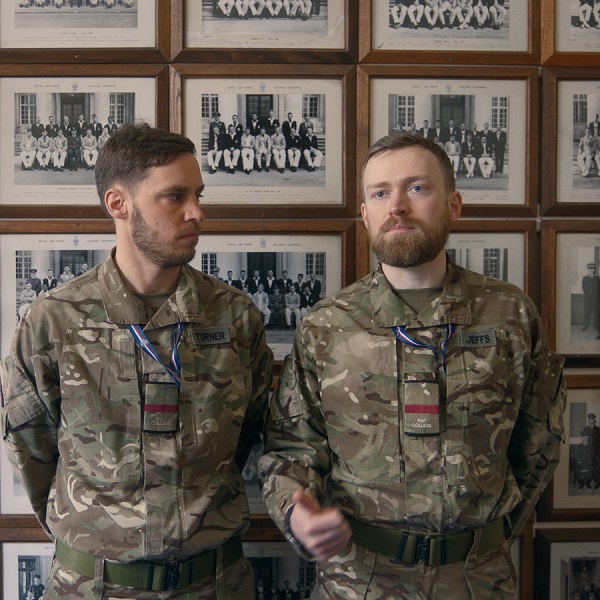Please view our Engineering Sponsorship page. This is only available for Regular applicants.
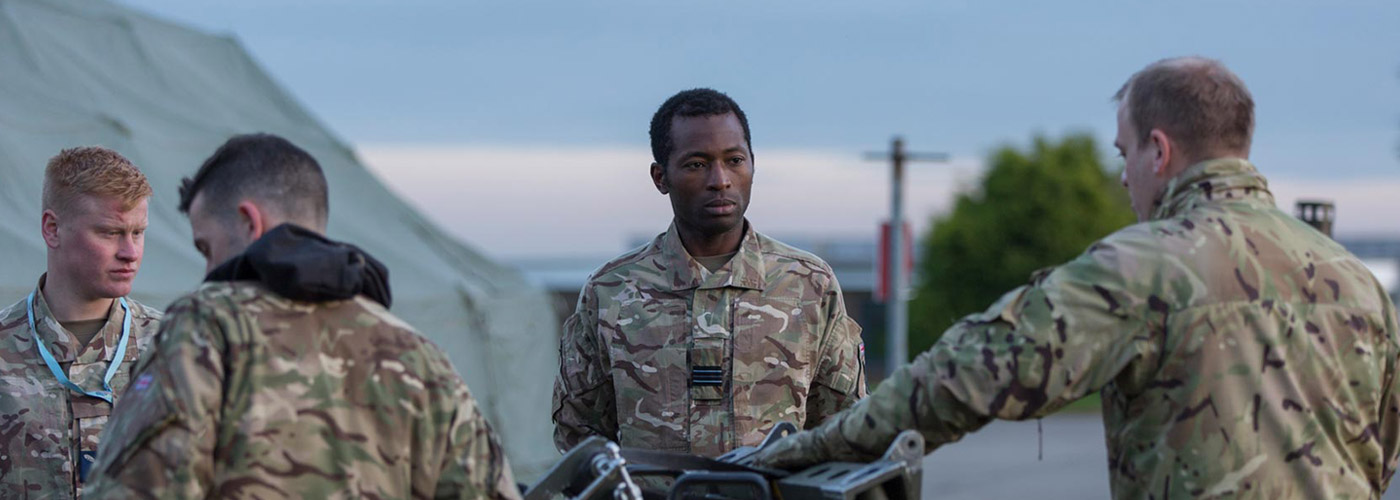
As an Engineer Officer (Communications Electronics) you are responsible for leading the engineering activity that supports the RAF’s vast array of information technology, strategic communications services, satellite communications, air defence RADARs and the latest generation aircraft engineering and mission support systems.
Already applied? See what the next steps are >
- Be ready to deploy all over the world, providing essential communication services in support of air operations, humanitarian aid and disaster relief
- Provide engineering and mission support systems for the latest generation of aircraft
- Specialise in cyber security helping to defend communication networks across defence
- Manage and lead large teams of highly skilled technicians
- Play a vital role in keeping lines of communication open
As an Engineer Officer (Communications Electronics) you are responsible for leading the engineering activity that supports the RAF’s vast array of information technology, strategic communications services, satellite communications, air defence RADARs and the latest generation aircraft engineering and mission support systems.
Already applied? See what the next steps are >
Be ready to deploy all over the world, providing essential communication services in support of air operations, humanitarian aid and disaster relief
Provide engineering and mission support systems for the latest generation of aircraft
Specialise in cyber security helping to defend communication networks across defence
Manage and lead large teams of highly skilled technicians
Play a vital role in keeping lines of communication open
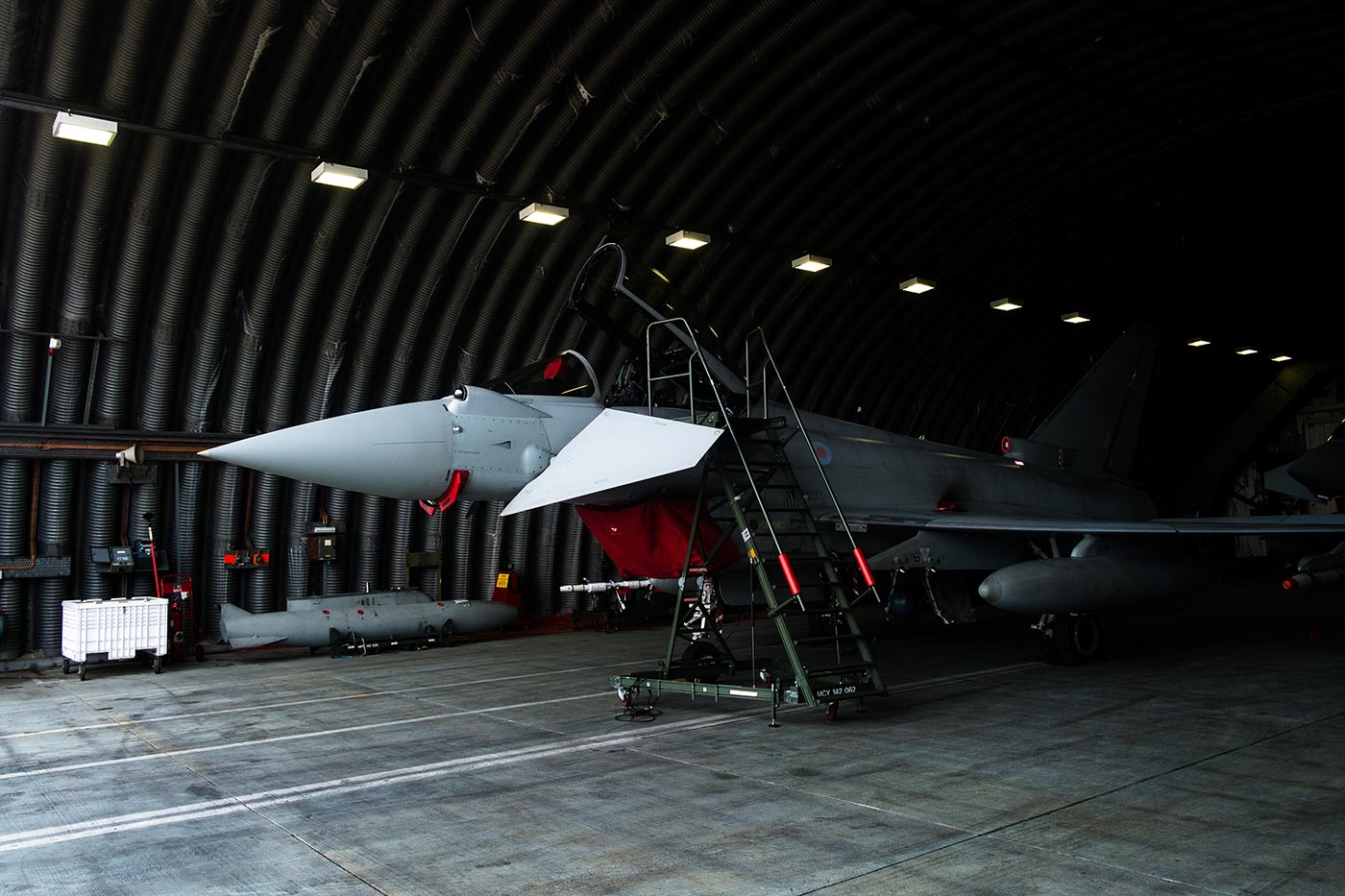

- An accredited Bachelors or Masters degree in an appropriate engineering, computing or scientific subject. - (Other degrees might be accepted at the discretion of the Engineer Specialist, please apply and this will be assessed on a case by case basis.)
- Applicants must also have a GCSE at Grade C/4 or Scottish National 5 at Grade C in English Language
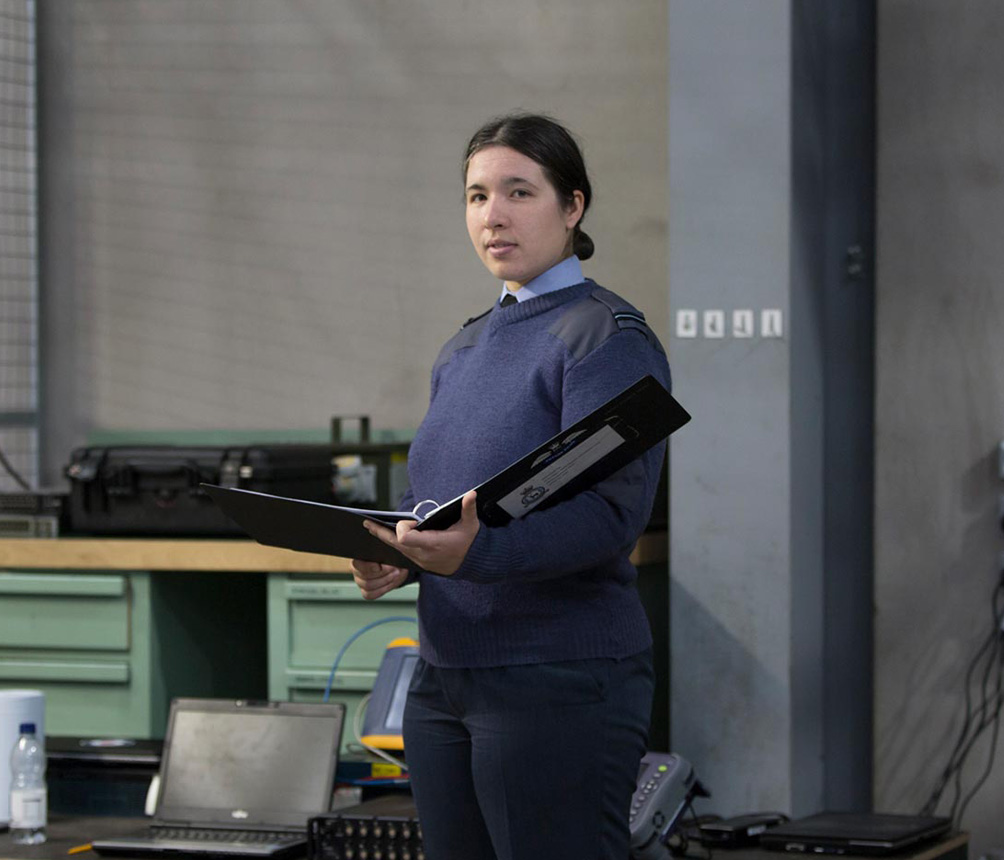
- An accredited Bachelors or Masters degree in an engineering or scientific subject, e.g: Electronic Engineering; Electrical Engineering; Computer Science or Physics.
- Degrees must be accredited by one or more of the 4 professional engineering institutions most closely aligned to the RAF’s needs:
- The Institution of Engineering and Technology (IET); The British Computer Society (BCS); The Royal Aeronautical Society (RAeS); The Institution of Mechanical Engineers (IMechE)

- Be aged 21 – 47 years old (Must attest before 48th birthday)
- You must be a citizen of the United Kingdom or the Republic of Ireland, holder of dual UK/other nationality or have been a Commonwealth citizen since birth (with ‘right to work’ immigration status)
- Pass the Officer and Aircrew Selection Centre
- Pass a Fitness test - Details below
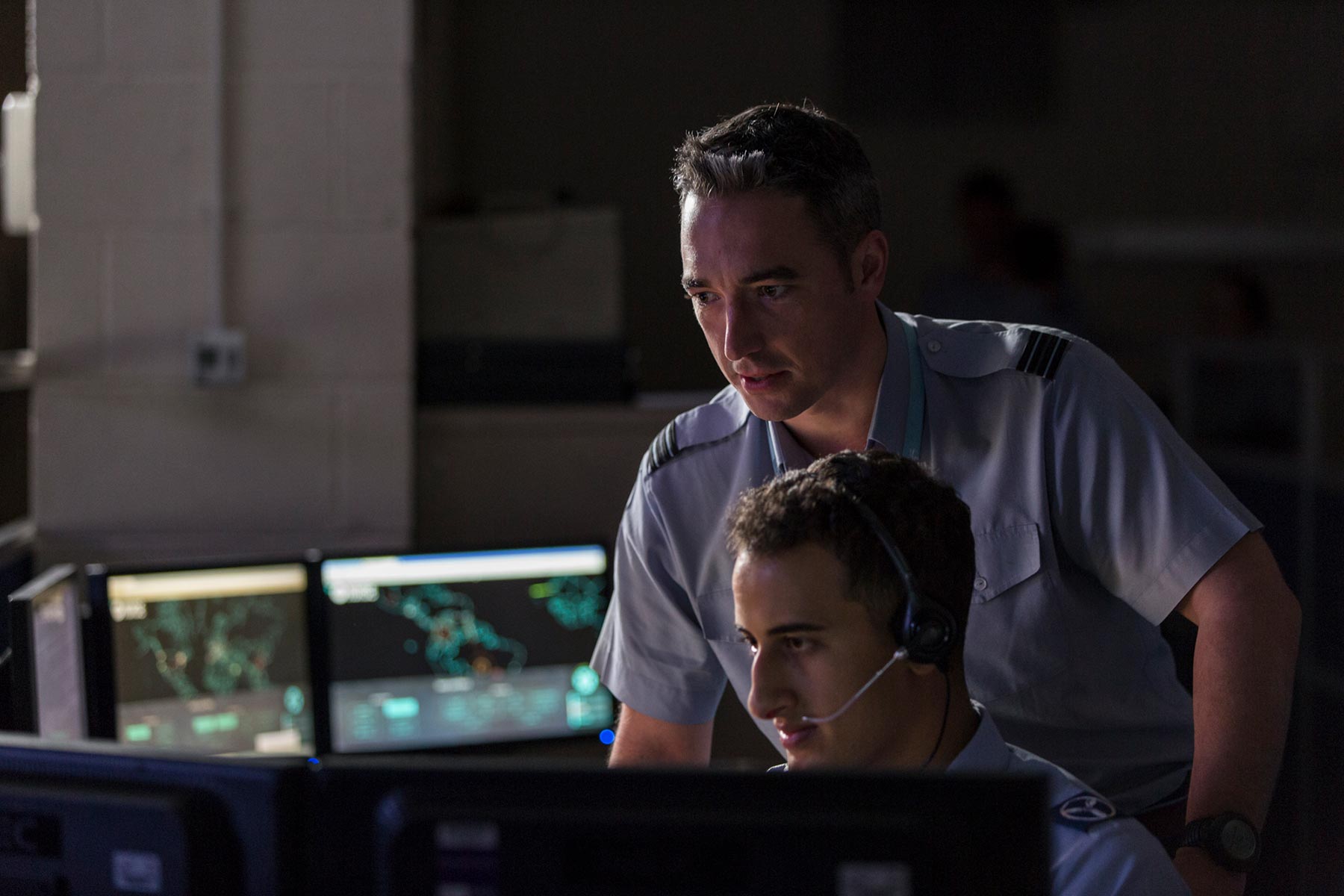
- Personnel interested in obtaining a commission in the RAF Engineering Reserves are required to join the Specialisation first and then to commission from the ranks. Suitability and requirements can be obtained from Squadron specialists.
- Ex-Regular Engineering officers and ex-military officers from an equivalent Branch will be considered on a case-by-case basis.
- Be aged 21-54 Applicants must apply no later than age 54 and 9 months in order to attest before 55th birthday
- Qualified ex-military personnel
- Be a UK, Republic of Ireland or Commonwealth citizen (with indefinite leave to remain immigration status)
- Commit to 27 days per year
- Pass a General Fitness Test

Thanks to subsidised food, travel, accommodation and free gym you get more money in your pocket.

The skills you acquire as a Reserve won’t just prepare you for the RAF, they will enhance your work and civilian life.
You might be called up to assist with our operations worldwide for up to six months, during which you may be able to claim a pay award to cover your and your employer’s costs.
You will have to commit to 27 days per year for 12 years minimum.
Each year includes a 15-day block for general RAF training, and 12 separate days for extra training or exercises.
You might be deployed to a UK or overseas base for up to 6 months after the first year.
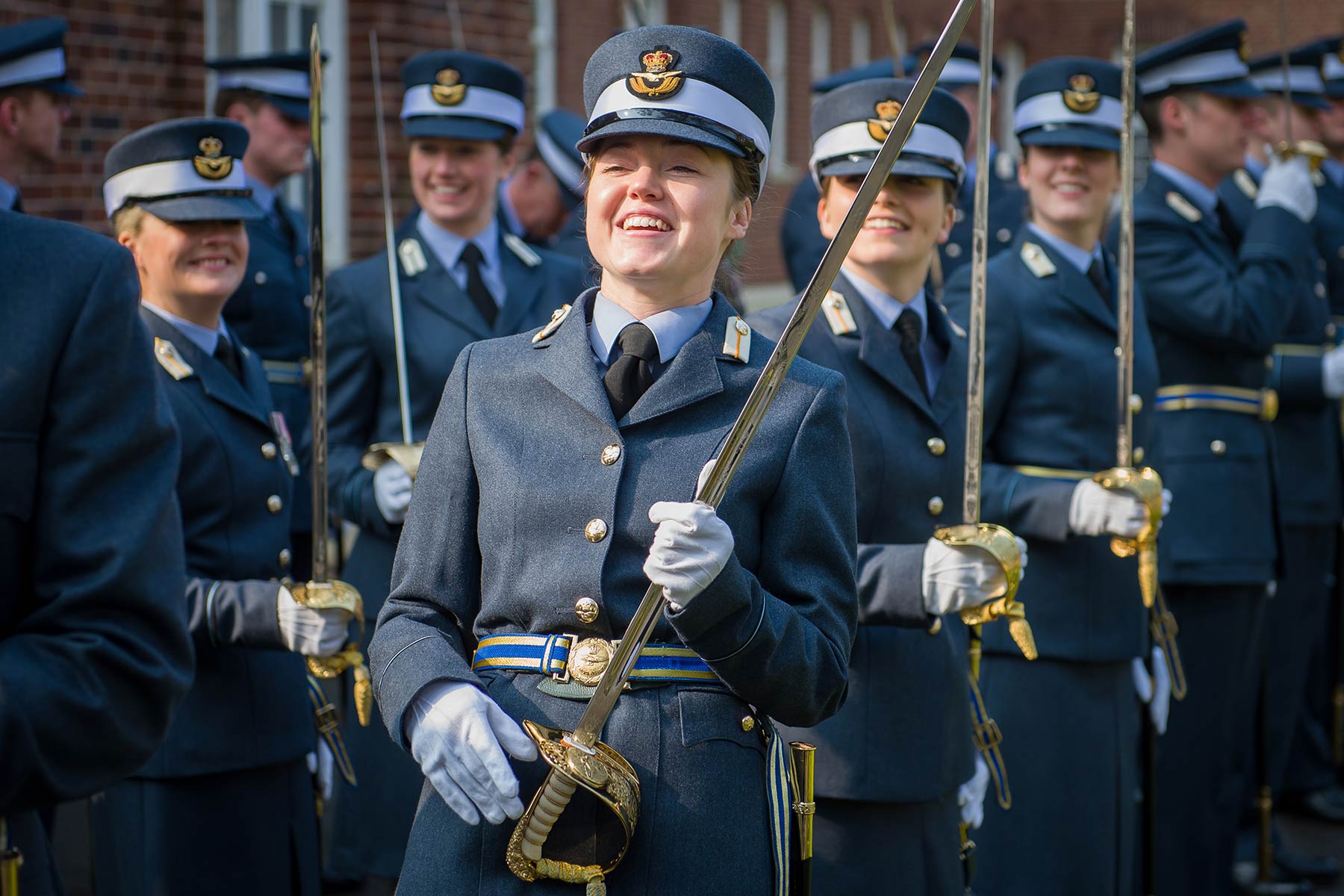
You must be aged 21 – 47 years old (Must attest before 48th birthday)
Applicants must also read all of the sections below and make sure they meet all entry requirements before submitting an application.

RESIDENCY

You must be physically fit to complete both initial and specialist training, and to do your role effectively. To check your fitness levels, we put every candidate through at least two separate fitness tests as part of the application process.
The first of these is the Pre-Joining Fitness Test (PJFT) which takes place at a fitness centre local to you. This consists of the following:
- 2.4km (1.5m) run on a treadmill (set to zero incline)
- Achieve the required number of press-ups - within 60 seconds
- Achieve the required number of sit-ups - within 60 seconds
How fit you need to be to pass these tests can vary depending on role, age and gender. The requirements are listed on the charts below (Male and Female).
| MEN | |||
| AGE | 2.4 Km Run | Press-ups | Sit-ups |
| (Mins) | (No.) | (No.) | |
| 15-16 | 12.39 | 20 | 35 |
| 17-29 | 12.11 | 20 | 35 |
| 30-34 | 12.36 | 19 | 32 |
| 35-39 | 13.02 | 18 | 29 |
| 40-44 | 13.30 | 17 | 26 |
| 45-49 | 14.00 | 16 | 23 |
| 50-54 | 14.34 | 15 | 20 |
| WOMEN | |||
| AGE | 2.4 Km Run | Press-ups | Sit-ups |
| (Mins) | (No.) | (No.) | |
| 15-16 | 14.59 | 10 | 32 |
| 17-29 | 14.30 | 10 | 32 |
| 30-34 | 14.55 | 9 | 29 |
| 35-39 | 15.21 | 8 | 26 |
| 40-44 | 15.58 | 7 | 23 |
| 45-49 | 16.32 | 6 | 20 |
| 50-54 | 17.06 | 5 | 17 |
See here for more information about the tests and a training plan
The second fitness test will take place at RAF Cranwell as part of your familiarisation visit. This includes press-ups, sit-ups and the Multi-Stage Fitness Test (MSFT or Bleep test). Standards to achieve will be given during the visit.

Candidates joining the RAF must be medically fully fit, both physically and psychologically, to meet the challenges of military service, during which they will be expected to deploy, potentially at short notice, to locations world-wide that are remote from established medical care.
Certain medical conditions could preclude entry to the RAF. Further details can be found in this document.
Before your application, please note that Body Mass Index Requirements are as follows:
| Age | Male and female minimum | Male and female maximum | Male maximum with additional assessment | Female maximum with additional assessment |
| 18 + | 18 | 30 | 32 | 32 |
| 16 to < 18 | 17 | 27 | 27 | 27 |
Eyesight requirements vary for different roles. A requirement to wear glasses or contact lenses may be allowed for aircrew.
If you are unsure about any health criteria, please continue your application and your eligibility will be assessed at the medical examination stage.
During your application, the Medical Risk Assessment that all candidates undergo is there to make sure that you are healthy enough for the intense training required by the RAF. Your application will be rejected if you fail to meet the minimum acceptable medical standard for entry. Your medical history is confidential and is not disclosed to those not authorised to hold this information.

YOU MUST
- Declare any previous spent and unspent convictions
- Check if you qualify under the Rehabilitation of Offenders Act 1974 through this summary
- Have a basic background check to get Security Check level clearance

YOU CAN'T APPLY FOR THE RAF IF YOU:
- Have been or are a member of a group that stirs up racial hatred and violence
- Are waiting to appear in court, or have unspent convictions. You may also have to declare spent convictions for certain roles
- Misuse drugs, solvents and anabolic steroids. But each case is considered upon its own merits
- Have tattoos, brands or bead implants that are obscene or offensive.
Any permanent or temporary tattoos, whether ordinarily visible or not, must not be obscene or offensive (eg, racist, anti-religion or belief, crude, overtly sexist, homophobic, drug related or of an extreme political nature). Tattoos may be worn on the side and back of the neck but tattoos on the back of the neck must not extend above the natural hairline (scalp tattoos are not permitted). - Have body piercing which causes holes that do not close up
- Declare yourself to be an 'undischarged' bankrupt
Beard Policy: A revised facial hair policy has been agreed by the Air Force Board which will allow serving personnel to wear a smart, neatly-trimmed, full-set beard whilst maintaining high standards of appearance. The length of acceptable beards is between Grade 1 (2.5mm) and Grade 8 (25.5mm). The wearing of beards during Phase 1 and Phase 2 training is currently under consideration and details will be advised when available
You must be aged 21-54. Applicants must apply no later than age 54 and 9 months in order to attest before 55th birthday. Ex-Regulars and specialist entrants may be considered on a case by case basis.
Applicants must also read all of the sections below and make sure they meet all entry requirements before submitting an application.

You must be a citizen of the United Kingdom or the Republic of Ireland, holder of dual UK/other nationality or have been a Commonwealth citizen since birth (with indefinite leave to remain immigration status)).
Whether or not you were born in the United Kingdom, you should have resided there for the 5 years immediately preceding your application. However, candidates with a minimum of 3 years will be considered.
Commonwealth citizens require a minimum of 5 years residency prior to any application.

You must be physically fit to complete both initial and specialist training, and to do your role effectively.
As part of the application process you will need to do the Pre-Joining Fitness Test (PJFT), which takes place at a fitness centre local to you. This consists of the following:
- 2.4km (1.5m) run on a treadmill (set to zero incline)
- Achieve the required number of press-ups - within 60 seconds
- Achieve the required number of sit-ups - within 60 seconds
How fit you need to be to pass this test can vary depending on role, age and gender. The requirements are listed on the charts below (Male and Female).
| MEN | |||
| AGE | 2.4 Km Run | Press-ups | Sit-ups |
| (Mins) | (No.) | (No.) | |
| 15-16 | 12.39 | 20 | 35 |
| 17-29 | 12.11 | 20 | 35 |
| 30-34 | 12.36 | 19 | 32 |
| 35-39 | 13.02 | 18 | 29 |
| 40-44 | 13.30 | 17 | 26 |
| 45-49 | 14.00 | 16 | 23 |
| 50-54 | 14.34 | 15 | 20 |
| WOMEN | |||
| AGE | 2.4 Km Run | Press-ups | Sit-ups |
| (Mins) | (No.) | (No.) | |
| 15-16 | 14.59 | 10 | 32 |
| 17-29 | 14.30 | 10 | 32 |
| 30-34 | 14.55 | 9 | 29 |
| 35-39 | 15.21 | 8 | 26 |
| 40-44 | 15.58 | 7 | 23 |
| 45-49 | 16.32 | 6 | 20 |
| 50-54 | 17.06 | 5 | 17 |
See here for more information about the test and a training plan

Candidates joining the RAF must be medically fully fit, both physically and psychologically, to meet the challenges of military service, during which they will be expected to deploy, potentially at short notice, to locations world-wide that are remote from established medical care.
Certain medical conditions could preclude entry to the RAF. Further details can be found in this document.
Before your application, please note that Body Mass Index Requirements are as follows:
| Age | Male and female minimum | Male and female maximum | Male maximum with additional assessment | Female maximum with additional assessment |
| 18 + | 18 | 30 | 32 | 32 |
| 16 to < 18 | 17 | 27 | 27 | 27 |
Eyesight requirements vary for different roles. A requirement to wear glasses or contact lenses may be allowed for aircrew.
If you are unsure about any health criteria, please continue your application and your eligibility will be assessed at the medical examination stage.
During your application, the Medical Risk Assessment that all candidates undergo is there to make sure that you are healthy enough for the intense training required by the RAF. Your application will be rejected if you fail to meet the minimum acceptable medical standard for entry. Your medical history is confidential and is not disclosed to those not authorised to hold this information.

YOU MUST:
- Declare any previous spent and unspent convictions
- Check if you qualify under the Rehabilitation of Offenders Act 1974 through this summary
- Have a basic background check to get Security Check level clearance

YOU CAN'T APPLY FOR THE RAF IF YOU:
- Have been or are a member of a group that stirs up racial hatred and violence
- Are waiting to appear in court, or have unspent convictions. You may also have to declare spent convictions for certain roles
- Misuse drugs, solvents and anabolic steroids. But each case is considered upon its own merits
- Have tattoos, brands or bead implants that are obscene or offensive.
Any permanent or temporary tattoos, whether ordinarily visible or not, must not be obscene or offensive (eg, racist, anti-religion or belief, crude, overtly sexist, homophobic, drug related or of an extreme political nature). Tattoos may be worn on the side and back of the neck but tattoos on the back of the neck must not extend above the natural hairline (scalp tattoos are not permitted). - Have body piercing which causes holes that do not close up
- Declare yourself to be an 'undischarged' bankrupt
Beard Policy: A revised facial hair policy has been agreed by the Air Force Board which will allow serving personnel to wear a smart, neatly-trimmed, full-set beard whilst maintaining high standards of appearance. The length of acceptable beards is between Grade 1 (2.5mm) and Grade 8 (25.5mm). The wearing of beards during Phase 1 and Phase 2 training is currently under consideration and details will be advised when available
If you don’t have any of the above, you might still be able to apply. For more information please contact us.
